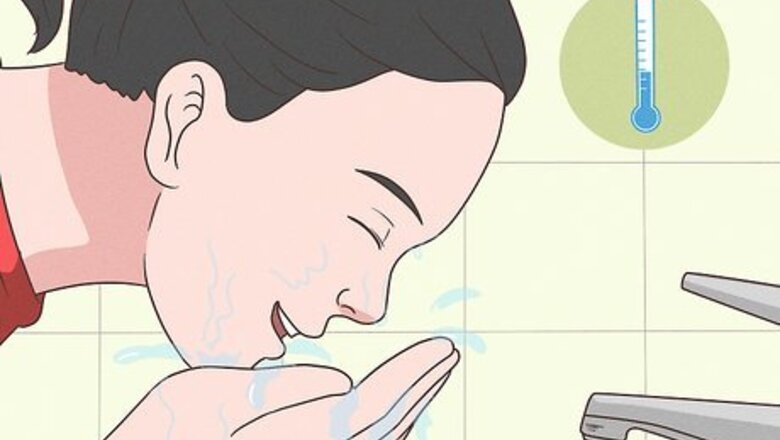
views
Splash your face with cold water.
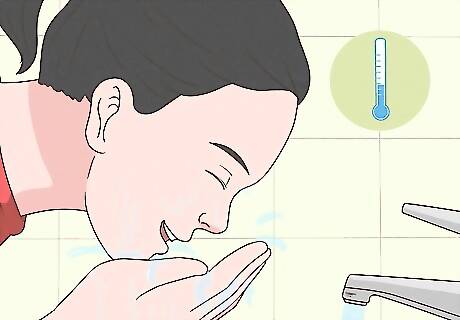
Cold water constricts blood vessels so your skin looks less puffy. This can leave your skin with a more even, toned appearance. It may help you wake up, too! Just splash cold water on your face for about 60 seconds and gently pat your skin dry with a clean towel.
Massage your face gently.
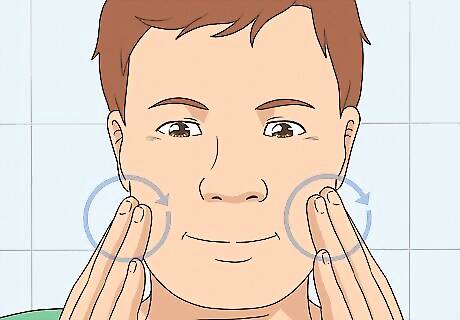
This stimulates blood circulation and reduce fluid retention. Apply moisturizer or face oil first, then use your fingertips to gently massage your skin in circular motions, moving upward and outward from the center of your face. Avoid vigorous rubbing since that can irritate your skin. You probably already know that ice reduces swelling, but did you know that it can also reduce puffiness in your face? For even better results, cover a cube in thin cloth and perform your massage using your wrapped ice.
Treat puffy eyes with cold spoons.
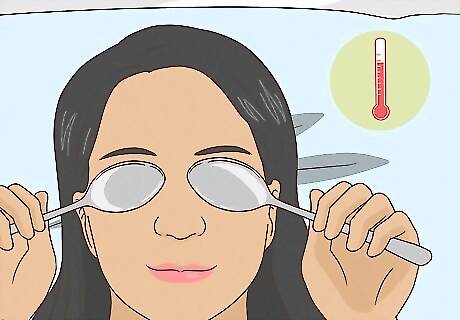
Chill 2 spoons in the fridge for 15-30 minutes. Then, lie down and place the spoons over your eyes for 10-15 minutes. The cold directly on your eyelids should help reduce any swelling back to normal levels. If this is a recurring problem, keep the spoons in your fridge overnight. If you're in a hurry, wrap ice cubes in a clean towel and apply them to your eyes. You can also apply cold cucumber slices on puffy eyes. Some believe that cucumber contains additional nutrients good for skin, but there is a small risk of eye infection from bacteria on the vegetable's surface
Try warm tea bags to sooth puffy eyes.
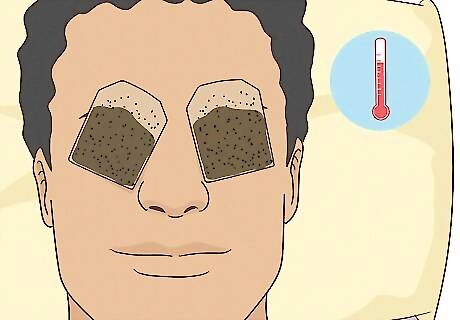
The warmth soothes your skin and relieves tension. Steep green tea bags in hot water for 3-4 minutes. Wait 10-20 minutes until they're cool enough to touch. Then, place the bags over your eyes for 15-20 minutes. While cold is generally more effective for reducing swelling, heat can soothe sore areas and relieve tension. The caffeine constricts blood vessels which can also lessen the swelling.
Start your day with a glass of water.
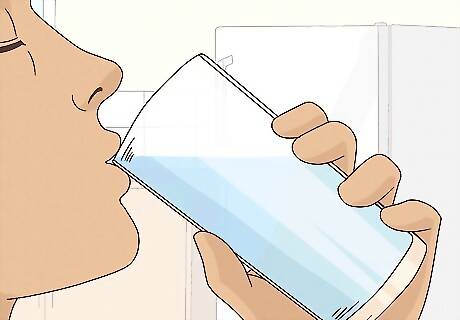
If you tend to wake up dehydrated, that may be causing your puffy face. Dehydration can make your eyes especially puffy! Downing 1 cup (240 mL) of water first thing in the morning can help rehydrate you and reduce swelling.
Apply moisturizer every day.
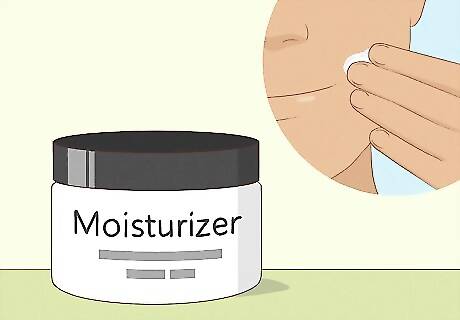
More moisture may be just what your skin needs. Moisturizer helps unpuff your face by increasing your skin's moisture barrier. The moisture barrier helps keep irritants and allergens from coming into contact with your skin, both of which can increase puffiness in your face. To pick the right moisturizer for you, determine if your skin is normal (not too dry or too oily), dry (flaky or prone to itch), oily (prone to grease and frequent breakouts), sensitive (vulnerable to allergic reactions), or a combination (different parts of the face are dry and oily).
Drink plenty of water every day.

Adults need to drink 11.5 to 15.5 cups (2.7 to 3.7 liters) of fluids a day. You can avoid dehydration by drinking fluids (preferably water) every time you feel thirsty. Eating foods that contain a significant amount of water, like watermelon and spinach, can also help to hydrate you. Dehydration causes water retention, which leads to swelling. Avoid alcoholic beverages since they can dehydrate you.
Sleep on your back, not your side.
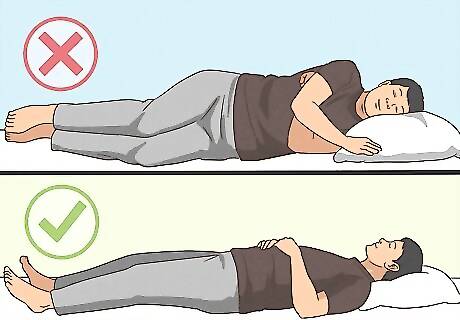
That way, you aren't putting pressure on your face when you sleep. If you don't want to give up your favorite sleeping position, switch to a softer pillow! A pillow without a lot of cushion can press against your face and cause it to swell. For example, try a soft, conforming pillow made of down or feathers. If you'd rather not use down, soft cotton or synthetic cotton works, too.
Elevate your head at night.
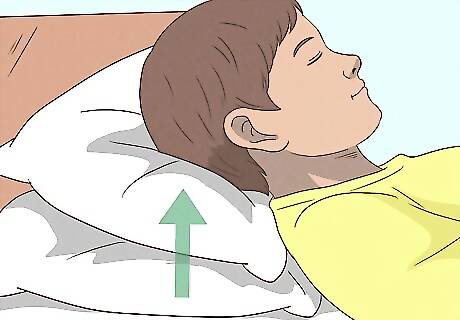
This may improve circulation and decrease puffiness in your face. Sleep on your back with another pillow under your head/neck at night. Be sure to raise your neck as well as your head! Sleeping with a bent neck can cause neck and back strain.
Get at least 7 hours of sleep every night.

Your body needs sleep to repair and restore itself each night. Sleep helps reduce swelling in your face by stimulating collagen growth. Chronic sleep deprivation can also increase the production of the stress hormone cortisol. This hormone breaks down collagen, which you need to keep your skin looking smooth and firm. Most adults need 7-9 hours of sleep. Teens need 8-10 hours.
Reduce your salt consumption.
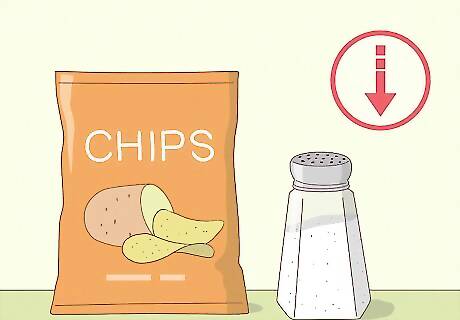
Salt causes water retention, which can lead to swelling in your face. Make sure you aren't exceeding your daily sodium limit and cut back if you do! The American Heart Association recommends each person get 2,300 milligrams a day (1 teaspoon). Replace salty foods like potato chips and French fries with healthier alternatives such as sunflower seeds, pumpkin seeds, and low-sodium pretzels.
See a doctor if the swelling doesn't ease up.
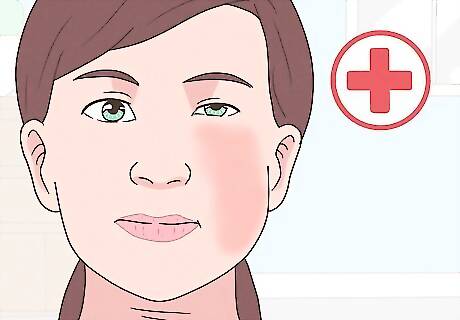
If only part of your face is swollen, keep an eye on it. If it doesn't go away, or if it feels painful when you press on it, visit a doctor. This may be due to an allergic reaction, bug bite, or eye infection. Your doctor can treatment the underlying condition. Swollen areas near the jaw are often caused by an infected tooth.














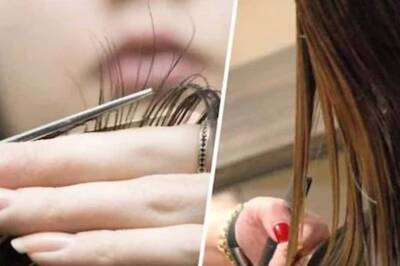




Comments
0 comment